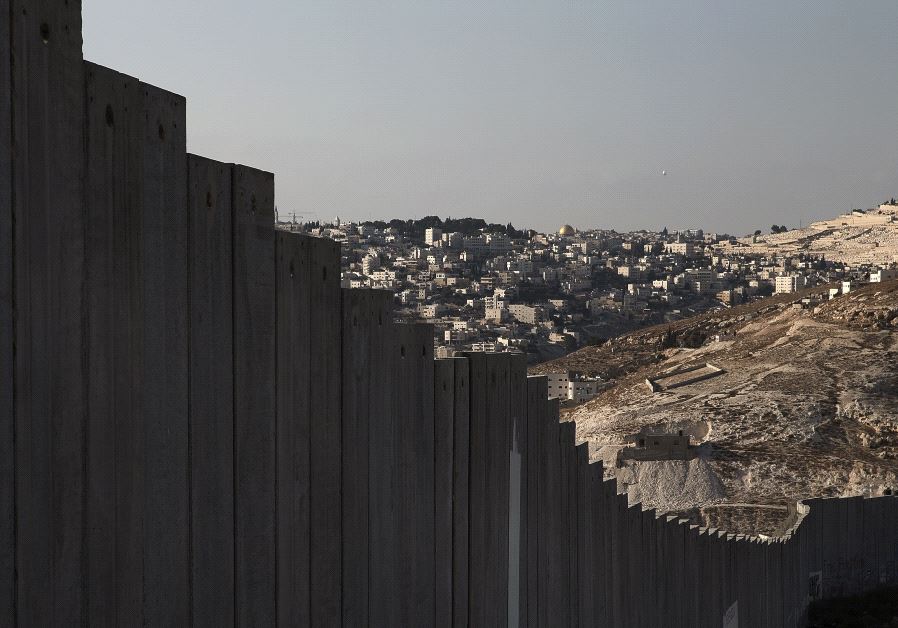No difference between the Right and the Zionist Union on Jerusalem?
It appears that there is no politician today who does not have a plan for Jerusalem. Indeed, what could be more attractive than Jerusalem?
 The security barrier leading up to Jerusalem(photo credit: FINBARR O'REILLY / REUTERS)
The security barrier leading up to Jerusalem(photo credit: FINBARR O'REILLY / REUTERS)